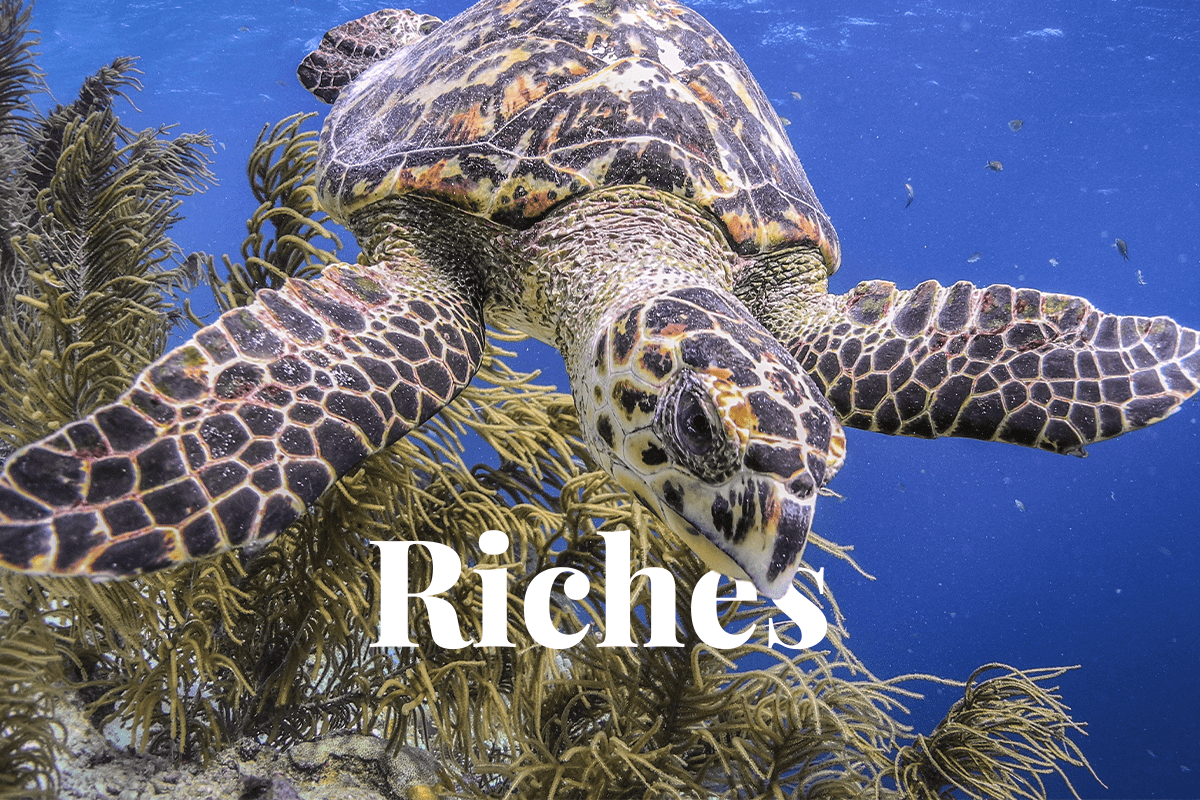Red Sea Global, the visionary developer behind two exceptional regenerative tourism projects, The Red Sea and Amaala, has recently published the results of an extensive environmental survey. This survey, one of the largest of its kind conducted by a developer, spans 250 kilometres of the Red Sea coastline.
 Hawksbill turtle on a tropical reef on the Red Sea coast.
Hawksbill turtle on a tropical reef on the Red Sea coast.
The comprehensive study focuses on the natural ecosystems and species within Red Sea Global's flagship destinations: The Red Sea, centred around Al Wajh lagoon, and Amaala, slightly to the north. Led by a dedicated scientific team at Red Sea Global, the study benefited from collaboration with partner groups worldwide, ensuring the application of cutting-edge methods and technologies to monitor critical resources.
John Pagano, CEO of Red Sea Global, expressed the organisation's commitment to responsible development and regenerative tourism. Their objective extends beyond conservation as they aspire to pioneer innovative approaches for ecosystem regeneration, aiming for a quantifiable 30% net conservation benefit by 2040. Annual updates will track their progress toward this ambitious goal.
Read more: The ultimate guide to plastic credits
Dr Omar Al Attas, head of environmental protection and regeneration at Red Sea Global, emphasised the organisation's scientific focus and dedication to preserving the health and wellbeing of the environments in which they operate. Their team of local and international scientists exemplifies the organisation's commitment to responsible tourism.
The survey conducted throughout 2022 along the Red Sea coast revealed the presence of numerous threatened and endangered species, establishing breeding grounds in the area. These findings underscore the significance of environmental protection and regeneration efforts by Red Sea Global and other stakeholders in the region. The ongoing monitoring efforts established as part of the study involve GPS and satellite tagging of over 30 Sooty falcons to better understand their breeding and hunting patterns. Additionally, several recently rehabilitated Hawksbill sea turtles were tagged, enhancing knowledge about their foraging behaviours.
To gain deeper insights into the study's trends, the research team employed state-of-the-art technology for ongoing data collection. This included recording various physical, chemical, and biotic variables across the region, as well as incorporating remotely sensed (satellite) data for larger areas.
The survey findings not only inform development decisions at Red Sea Global, prioritising minimal impact on natural ecosystems, but also contribute valuable insights and data on endangered wildlife species to the global scientific community, supporting conservation efforts worldwide.
Read more: 7 Strategies for protecting wildlife
Red Sea Global's commitment to leaving their destinations in a healthier and more thriving state than before is demonstrated through these studies. In addition to promoting sustainable tourism practices, the findings highlight the organisation's dedication to prioritising the planet's and its people's wellbeing.
For us at DGB Group, part of fulfilling our mission of helping nature thrive and prosper means safeguarding biodiversity. That is why our projects are designed to support local biodiversity, as is the case with our Habitat Restoration Project in Uganda, which aims to protect the habitat of Bulindi chimpanzees.
Contact our experts to join the mission



